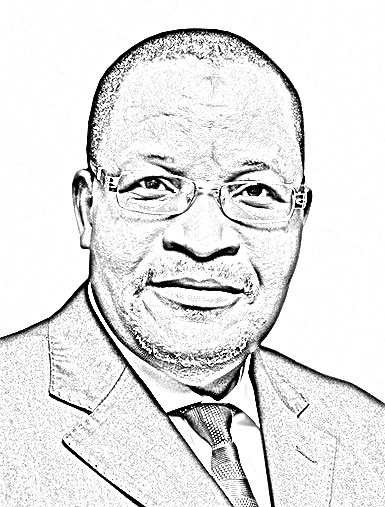The 11th edition of the Digital Africa Conference and Exhibition (DACE) commenced with a resounding keynote address delivered by Professor Umar Garba Danbatta, Executive Vice Chairman/Chief Executive Officer (EVC/CEO) of the Nigerian Communications Commission (NCC). Prof. Danbatta’s insightful speech revolved around the conference’s theme: “Artificial Intelligence and Africa.”
Represented by Dr. Emilia Nwokolo, Head of Consumer Information and Education at the NCC, Prof. Danbatta began by emphasizing the significance of the chosen theme. He noted that the theme, “Artificial Intelligence and Africa,” perfectly aligns with Africa’s ambition to harness technology for economic growth, social development, and innovation.
Artificial Intelligence (AI), Prof. Danbatta stated, is undeniably one of the most transformative technologies of our era. Its potential to reshape industries, boost productivity, and enhance the overall quality of life cannot be overstated. He pointed out the widespread presence of AI-powered technologies in our daily lives, from voice assistants to mobile phone facial recognition and machine learning-based financial fraud detection.
The EVC/CEO also highlighted the remarkable progress made in AI across various sectors, including healthcare, agriculture, finance, transportation, education, and governance. AI-powered solutions, he emphasized, have the potential to tackle Africa’s pressing challenges, such as limited healthcare access, food security, financial inclusion, and infrastructure development.
However, to fully harness the benefits of AI, Prof. Danbatta outlined several crucial considerations. First and foremost, there is a need for substantial investment in digital infrastructure, including the expansion of broadband connectivity. He cited Nigeria’s broadband penetration of 47.01% as of July 2023, underlining the importance of closing the digital divide.
Digital skills development emerged as another priority. Prof. Danbatta stressed the importance of educating and training the youth to be proficient in AI technologies, as these skills are essential for the development, deployment, and maintenance of AI systems. Nurturing a generation of AI experts, he argued, would elevate Africa’s standing in the global AI landscape while creating job opportunities for the youth.
Ethical considerations also played a significant role in Prof. Danbatta’s address. He emphasized the need for transparency, accountability, and fairness in deploying AI systems. Guarding against biases, ensuring privacy and data security, and upholding human rights were all essential principles to ensure that AI is used for the betterment of society.
Collaboration and partnerships were highlighted as key drivers for unlocking AI’s potential in Africa. Prof. Danbatta called for cooperation among governments, regulatory bodies, academia, the private sector, and civil society. Such collaborations, he argued, would enable the sharing of knowledge, pooling of resources, and the leveraging of expertise to drive innovation and create an environment conducive to AI adoption.
In concluding his address, Prof. Danbatta reiterated the NCC’s commitment to supporting AI technology development and deployment in Nigeria and across Africa. He spoke of the NCC’s efforts in establishing an enabling regulatory framework, collaborating with stakeholders to create AI research and development centers, incubation hubs, and startup ecosystems aimed at nurturing local AI talent.
The 11th DACE conference, with its theme of “Artificial Intelligence and Africa,” promises to unveil a world of possibilities. As AI continues to evolve, it holds the potential to transform African societies, spur economic growth, and enhance the well-being of its people. Prof. Danbatta’s keynote speech set the tone for a conference that will explore the boundless opportunities that AI offers, with the ultimate goal of building an inclusive, sustainable, and AI-powered Africa.




